Birds’ fear of humans stems from a combination of evolutionary instincts, learned behavior, and past threats. Understanding why birds are scared of humans is essential for promoting their conservation and minimizing disturbance.
By delving into the factors that contribute to their fear response, we can foster a greater appreciation and respect for these remarkable creatures.
Well, you must be thinking about how you can get accustomed to your birds so easily, right? But first, you need to know why they are afraid of you. And that’s what we will discuss today. Let’s check some essential factors.
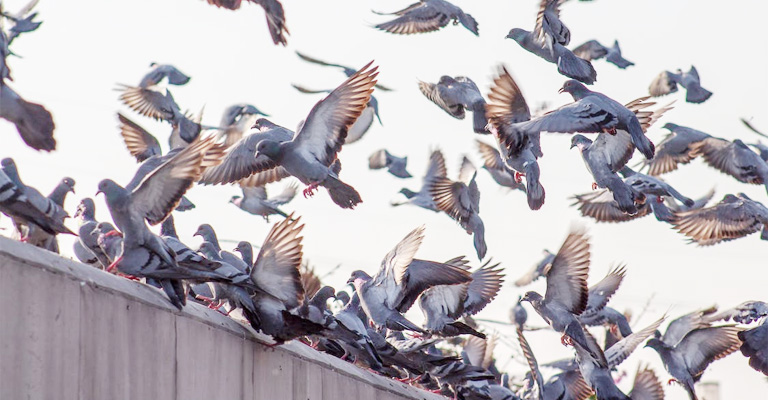
The Evolutionary Perspective
It is first needed to learn about the facts of the evolutionary perspective of birds in the context of being scared of humans. Let’s check them out.
The Concept of Predators and Prey in the Natural World
In the natural world, the relationship between predators and prey is a fundamental aspect of survival. Predators possess characteristics and behaviors that allow them to capture and consume other animals, while prey species have evolved mechanisms to avoid being caught.
This dynamic has shaped the instincts and behaviors of both predators and prey, including birds.
Recognize Humans as Potential Threats
Over time, birds have adapted to identify potential threats in their environment, including humans. This recognition is based on various cues such as size, shape, and behavior.
Birds have developed the ability to quickly assess whether a human poses a danger, triggering their instinctual fear response. This evolutionary adaptation helps them avoid potential harm and increases their chances of survival.
The Survival Advantage of Being Cautious
Birds’ caution towards unfamiliar beings, including humans, provides them with a survival advantage. By being inherently wary, birds can minimize their exposure to potential dangers.
Even though humans may not be direct predators of birds, their unfamiliarity, unpredictable behavior, and perceived threat can lead to an instinctive flight response in birds.
This cautionary behavior helps ensure their safety and allows them to thrive in their natural habitats.
Birds’ fear of humans can be understood through an evolutionary lens. The concept of predators and prey, coupled with birds’ ability to recognize potential threats, has shaped their instinctual fear response towards humans.
Being cautious around unfamiliar beings provides birds with a survival advantage, allowing them to avoid potential harm and maintain their place in the natural world.
Unfamiliarity and Unpredictability

There are some factors of unfamiliarity that work effectively in the context of birds’ behavior. Here are some essential points you need to know.
Thinking of Humans as Unpredictable Creatures
Birds have evolved in ecosystems where humans were not historically present as constant elements. As a result, humans are considered unpredictable creatures to birds, and their behavior can be challenging for birds to anticipate.
Unlike other familiar animals, humans display a wide range of actions and intentions, making it difficult for birds to accurately assess the level of threat posed by their presence.
Human Noises and Movements
Humans often make noises and movements that are unfamiliar to many wild birds. The sounds of human voices, footsteps, vehicles, and other man-made disturbances can startle birds and trigger their flight response.
Additionally, sudden or erratic movements made by humans, such as waving arms or sudden changes in direction, can further unsettle birds and reinforce their perception of humans as potential threats.
The Role of Unfamiliarity in Triggering Birds
For birds, unfamiliarity is closely tied to their survival instincts. When confronted with something unfamiliar, including humans, birds tend to err on the side of caution and prioritize their safety.
The flight response is a common reaction triggered by unfamiliarity, allowing birds to quickly remove themselves from potential harm.
This instinctual behavior helps ensure their survival by minimizing their exposure to unknown and potentially dangerous situations.
The unfamiliarity and unpredictability of humans in birds’ natural habitats contribute significantly to birds’ fear response. Humans’ unpredictable behavior, unfamiliar noises, and startling movements can trigger the flight response in birds.
Their instinctual response to unfamiliarity serves as a survival mechanism, enabling birds to avoid potential threats and maintain their safety in their natural environments.
Perceived Threat and Predatory Instincts
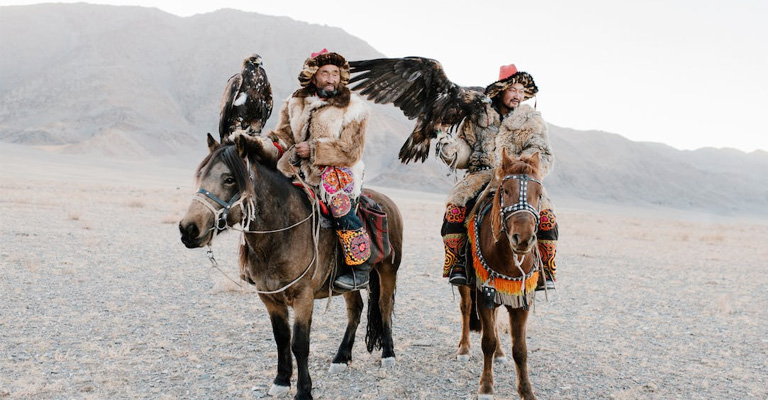
For birds, human presence is sometimes like a threat. Here are some concepts that will help you understand their behavior.
Birds’ Ability to Sense Human Curiosity
Birds are highly perceptive creatures and can sense the curiosity and intent of humans. They can pick up on cues such as body language, eye contact, and overall demeanor to assess whether humans pose a threat.
Even subtle changes in human behavior can be detected by birds, leading to heightened wariness or flight responses. This ability to sense human curiosity helps birds evaluate the potential danger and adjust their behavior accordingly.
Human Approach and Aggression on Bird Behavior
The approach and behavior of humans can have a significant impact on how birds respond. When humans approach too closely or display signs of aggression, birds perceive this as a direct threat and respond accordingly.
Aggressive gestures, loud noises, or sudden movements can startle and frighten birds, causing them to flee or seek cover. The negative interactions between humans and birds can reinforce birds’ fear and lead to avoidance behaviors in the future.
Influence of Birds’ Predatory Instincts to Fear Humans
Birds possess innate predatory instincts that are crucial for their survival. These instincts have evolved over time to help them identify potential predators, including humans.
Birds recognize certain characteristics and behaviors in humans that resemble those of predators. This recognition triggers their fear response and prompts them to avoid human presence as a precautionary measure.
By being cautious around humans, birds can mitigate the risk of falling prey to a potential predator.
Perceived threat and predatory instincts significantly contribute to birds’ fear of humans. Birds’ ability to sense human curiosity and intent allows them to evaluate potential dangers.
The impact of human approach and aggression on bird behavior reinforces their fear response. Additionally, birds’ innate predatory instincts influence their perception of humans as potential threats, prompting them to exhibit cautious behaviors.
Historical Context and Learned Behavior
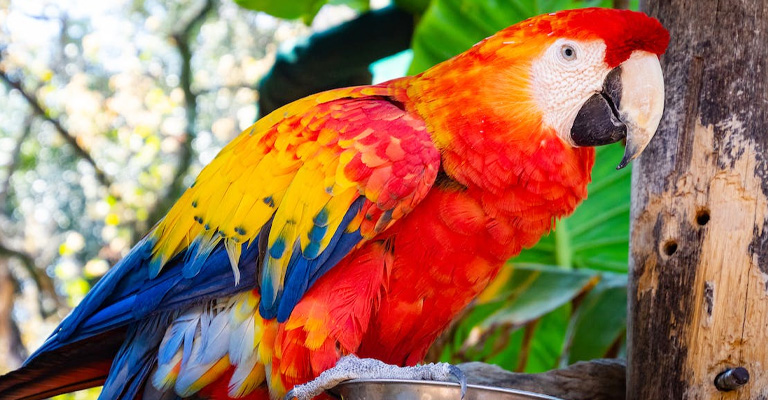
I have also collected some points regarding the historical context of bird behavior and I think you need to learn them as well. Check them right below.
The Historical Predation of Birds by Humans
Throughout history, humans have hunted birds for various purposes, including food, sport, and feathers. The practice of hunting and consuming birds was more prevalent in the past than it is today.
Birds were targeted for their meat, eggs, feathers, and even for adornment. This historical predation created a direct threat to bird populations and contributed to their innate fear of humans.
The Lingering Effect of Past Threats
The historical predation of birds by humans has left a lasting impact on their fear response. Even though the hunting of birds has reduced significantly in many regions, birds may still possess an instinctual fear of humans based on their evolutionary history.
The past threats and the survival advantage of being cautious around humans have been imprinted in their behavior over generations.
Recognizing Humans as Threats
Birds are capable of learning through their experiences. If individual birds or populations have had negative encounters with humans, they may develop learned behavior that recognizes humans as threats.
This learned behavior can be passed down through generations, reinforcing the fear response. Birds may observe and learn from the behavior of their flock members or through direct negative interactions with humans, further solidifying their perception of humans as potential dangers.
Historical context and learned behavior contribute to birds’ fear of humans. The historical predation of birds by humans has had a lasting impact on their fear response, even in modern times.
Birds may possess innate fear due to their evolutionary history, and learned behavior can further reinforce their perception of humans as threats.
Recognizing the influence of historical context and learned behavior is important in understanding birds’ fear of humans and promoting conservation efforts that minimize disturbance to bird populations.
Variations in Bird Behavior
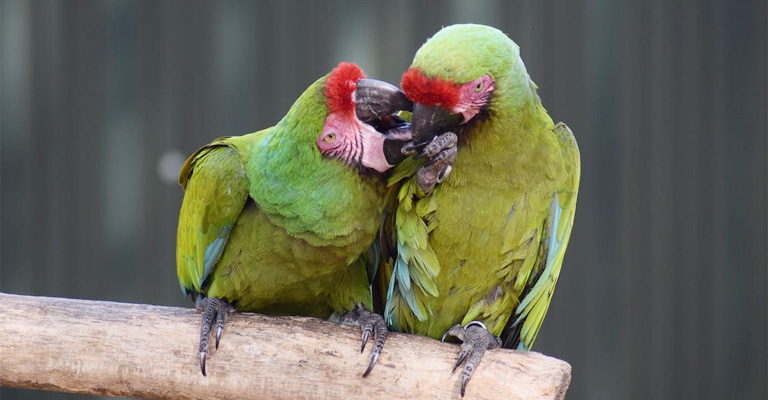
As well, birds’ behavior varies from species to species. And that is another reason, your birds can act differently. You will have a better idea about this fact from the below points.
Habituation to Human Presence in Certain Environments
In some environments, birds may become habituated to the presence of humans. Habituation occurs when birds are repeatedly exposed to non-threatening human activities, leading them to become less fearful over time.
This can be observed in urban areas or parks where birds have adapted to the consistent presence of humans and have learned that they pose no immediate danger.
As a result, birds in these environments may exhibit reduced fear and may even approach humans more closely.
Factors That Influence Birds’ Tolerance of Humans
Various factors can influence birds’ tolerance of humans. Urban areas, for example, often provide a constant source of food, water, and shelter for birds.
As a result, birds in urban environments may be more accustomed to human presence and display greater tolerance.
The availability of resources, the level of human disturbance, and the overall quality of the habitat can all influence how birds perceive and respond to humans.
Case Studies and Examples in This Context
There are numerous case studies and examples that highlight birds’ behavior in the presence of humans.
For instance, certain bird species, such as pigeons, ducks, and geese, have become accustomed to human interactions in parks and may readily approach for food.
Some species, like chickadees, have even been known to eat directly from human hands. These examples demonstrate the potential for birds to adapt their behavior and tolerate human presence under specific circumstances.
The Importance of Bird Conservation and Respect
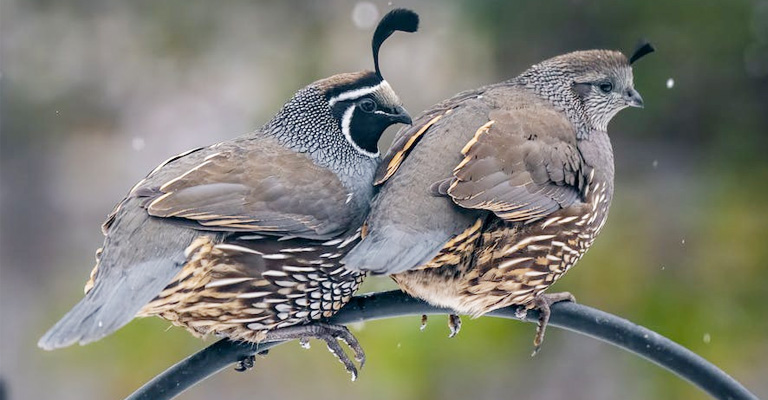
You should also remember that birds’ behavior is closely related to their conversation and your bonding with them. The below facts usually come as effective in this case.
Importance of Protecting Bird Habitats
Bird habitats play a vital role in supporting healthy bird populations. It is essential to conserve and protect these habitats to ensure the survival of bird species.
Minimizing human disturbance, such as avoiding nesting areas during breeding seasons and limiting habitat destruction, is crucial for maintaining the integrity of bird habitats.
By respecting their living spaces, we can help create a safe and sustainable environment for birds.
Effective Birdwatching Practices
Birdwatching is a popular activity enjoyed by many enthusiasts. However, it is important to engage in responsible birdwatching practices to minimize stress on birds.
This includes maintaining a respectful distance, using binoculars or telephoto lenses instead of approaching too closely, and refraining from disturbing nesting sites or sensitive habitats.
By following these practices, birdwatchers can enjoy observing birds while ensuring minimal disruption to their natural behavior and well-being.
Promoting Awareness of Birds’ Fear of Humans
Raising awareness and fostering understanding about birds’ fear of humans is essential for promoting their conservation.
Educating the public about the instinctual and evolutionary reasons behind birds’ fear can help cultivate empathy and respect for their natural behaviors.
Sharing information through educational programs, interpretive signage, and online resources can help people appreciate the importance of maintaining appropriate distances and avoiding actions that may frighten or disturb birds.
Bird conservation and respect are vital for ensuring the well-being and preservation of bird populations.
Factors Influencing Birds’ Fear of Humans
| Topic | Factors |
| Evolutionary Perspective | Concept of Predators and Prey in the natural world |
| Evolutionary adaptation to recognize humans as threats | |
| The survival advantage of being cautious around unfamiliar beings | |
| Unfamiliarity and Unpredictability | Humans as unpredictable creatures in birds’ natural habitats |
| Unfamiliar noises and movements that startle birds | |
| Role of unfamiliarity in triggering the flight response | |
| Perceived Threat and Predatory Instincts | Birds’ ability to sense human curiosity and intent |
| Impact of human approach and Aggression on bird behavior | |
| Influence of Birds’ predatory instincts on Fear of Humans | |
| Historical Context and Learned Behavior | Historical predation of birds by humans |
| The lingering effect of past threats on fear response | |
| Potential for learned behavior in recognizing humans as threats | |
| Variations in Bird Behavior | Habituation to human presence in certain environments |
| Factors influencing birds’ tolerance of humans | |
| Case studies and examples of birds’ behavior around humans | |
| Importance of Bird Conservation and Respect | Need to protect bird habitats and minimize human disturbance |
| Responsible birdwatching practices to minimize stress on birds | |
| Promoting awareness and understanding of birds’ fear of humans |
FAQs
No, bird species can vary in their level of fear and tolerance towards humans. Some species, particularly those that have habituated to human presence or are found in urban environments, may display less fear and exhibit greater tolerance.
Others, especially those with limited exposure to humans, may be more cautious and easily startled.
Yes, under certain circumstances, birds can become habituated to human presence and display reduced fear. This typically occurs when birds have repeated positive experiences and interactions with non-threatening humans.
However, it is important to note that habituation is not universal, and some birds may retain their innate fear response.
To minimize disturbance and stress on birds while birdwatching, it is essential to practice responsible behavior.
Keep a respectful distance from the birds, use binoculars or telephoto lenses for closer observation instead of approaching too closely, avoid disturbing nesting sites or sensitive habitats, and follow any regulations or guidelines specific to the area you are birdwatching in.
Aggressive behavior by birds towards humans is relatively rare but can occur when birds feel threatened or perceive humans as a direct danger to themselves, their nests, or their offspring.
It is important to respect their boundaries and avoid actions that may provoke defensive responses.
Bird feeding, when done responsibly and in moderation, generally does not have a significant negative impact on birds’ fear of humans. However, over-reliance on human-provided food sources can potentially lead to unnatural dependence and alter natural foraging behaviors.
It is important to follow proper bird feeding practices and provide a balanced diet that supplements, rather than replaces their natural food sources.
Conclusion
The fear that birds exhibit towards humans can be attributed to various factors rooted in their natural instincts and past experiences.
Birds are naturally wary of potential predators, and their instinctual response to humans, who are much larger and more unpredictable than their typical predators, is often one of caution and avoidance.
Additionally, birds are highly perceptive and sensitive to movements, sounds, and sudden changes in their surroundings, making them particularly sensitive to human presence.
Developing a mutual understanding and respect for the natural behaviors and needs of birds can enable us to coexist harmoniously and appreciate the beauty and diversity of avian species.
By giving birds the space and security they require, we can encourage their presence and contribute to the conservation of these magnificent creatures for generations to come. Best of luck.